The White Tank Mountains are my absolute favourite hiking range in Arizona. Climbing the Waterfall Trail is a tradition for my family and me whenever we’re back in Phoenix. It’s been a trail I’ve trekked ever since I was a baby, hiking with my grandparents. Every stone and cacti here brings back good memories. But it’s not just my own nostalgia which makes this trail such a good beginner trek for new hikers. It really is a wonderful hike which provides a great introduction to the Sonoran desert flora and fauna at an easy and enjoyable pace.

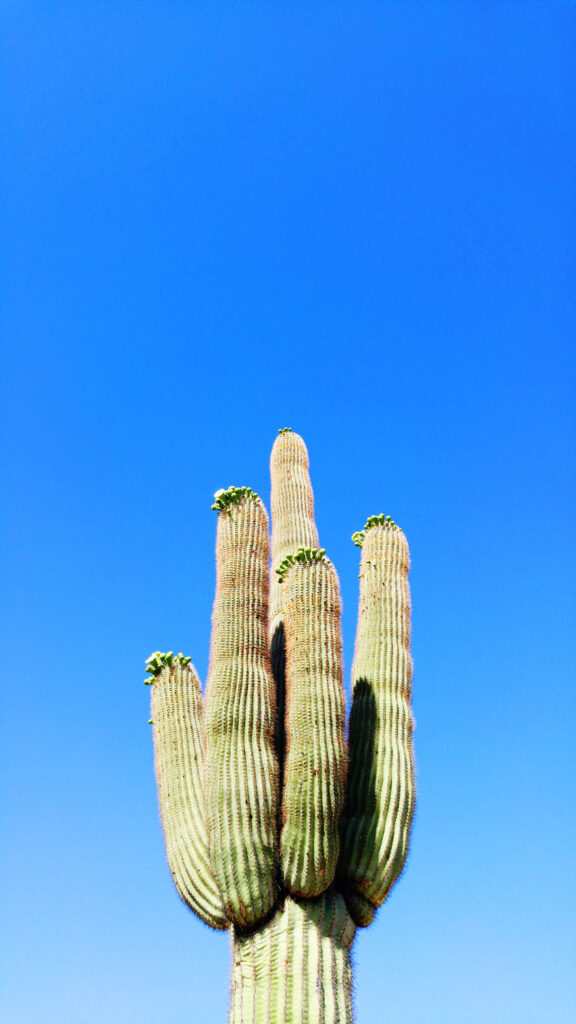
History & Information
The White Tank Mountains are a fascinating range of carved stone. The mountains were created by the huge flash floods that sent rainwater pouring down the canyon year after year, creating depressions in the white granite rocks. In 1893, gold was starting to be discovered in central Arizona. Because of the water that past through the rocks, a natural basin was formed. Having access to water on the long road through the mountains to central Arizona was so important for the gold miners. The water basin was named “the White Tank” as the water was surrounded by bright white granite cliffs. Between 1898 and 1902 the natural basin which held the water collapsed due to a heavy rainstorm. But the name remained.
The mountain range takes up about 30,000 acres and the highest part is over 4,000 feet. As early as 500 BC, the Hohokam native people began to build villages throughout this area. Evidence of these sites has been discovered in archaeological excavations.
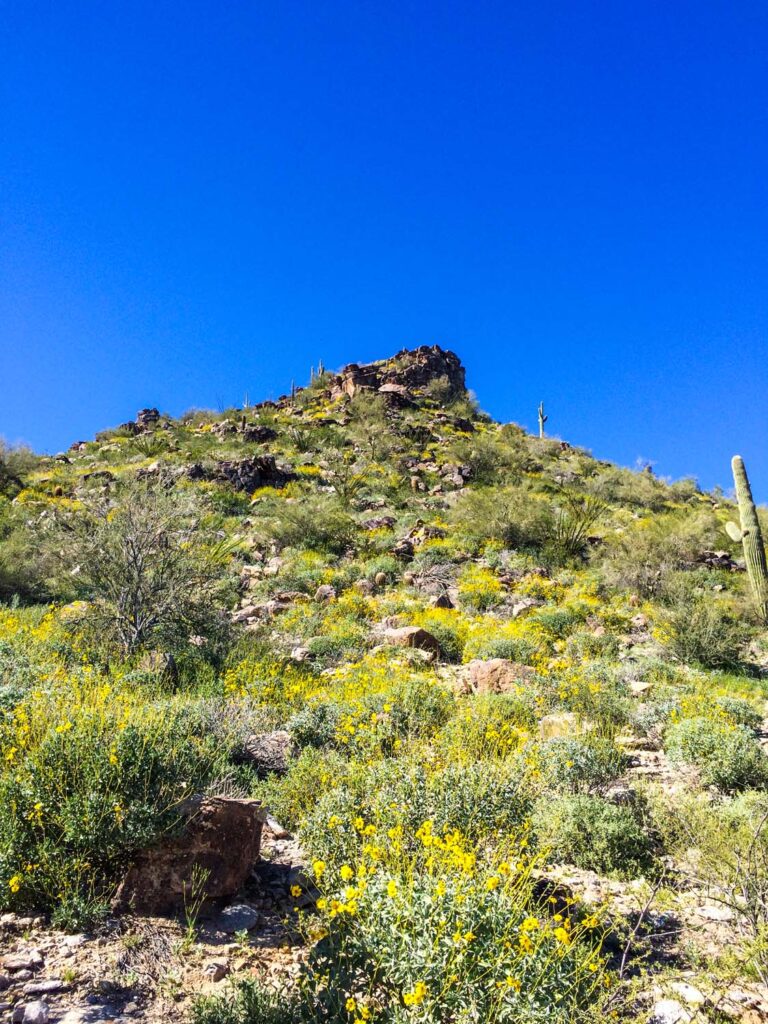
When to Go
The summer is HOT in Phoenix! Even before the sun comes up it can be over 100 degrees in the sun. So I would always advise against going out hiking in the middle of the summer in Phoenix unless you’re a huge fan of the heat. Otherwise, as long as you stick to the beginning of the day, you can usually avoid the heat pretty well. Early in the morning will also mean you will have the desert to yourself! This trail is often busier during the afternoon so if you want a peaceful walk to yourself, come early in the morning.
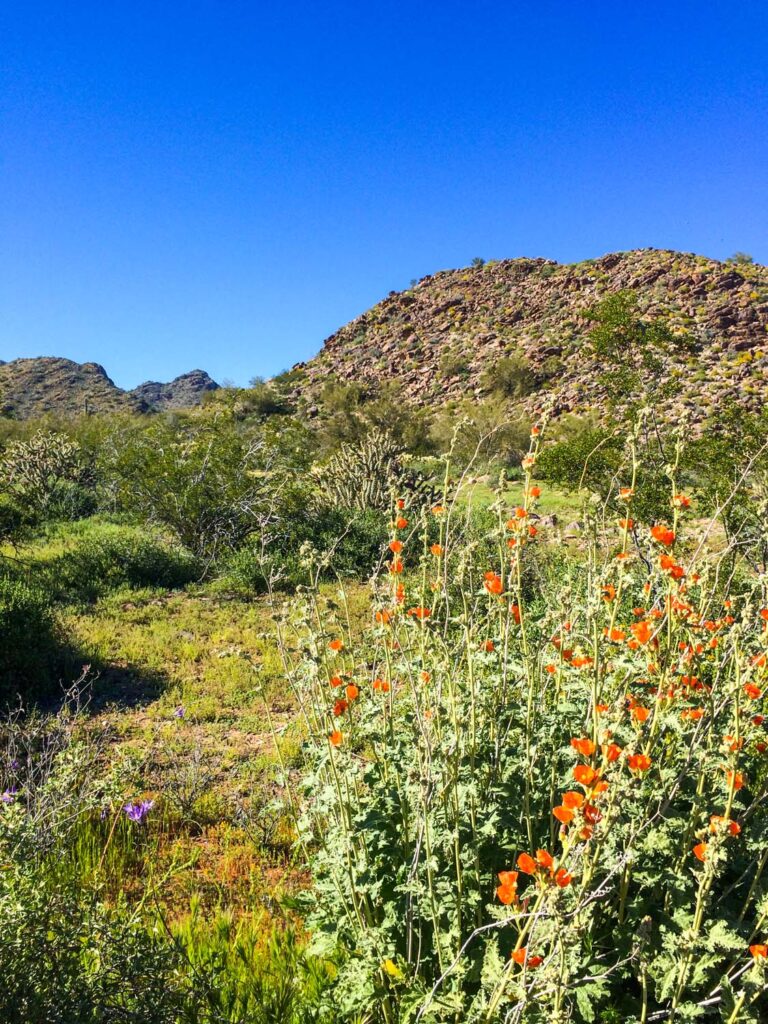
My favourite time to go hiking in Phoenix is during the springtime when the desert flowers are blooming! Yes, there really are flowers in the desert. Wildflowers generally bloom in the Sonoran desert from mid-March to late April. And if there has been a lot of rain that year expect a huge burst of colour! This trail is the perfect way to get away from a busy week in the city. It’s a welcome quiet interlude.
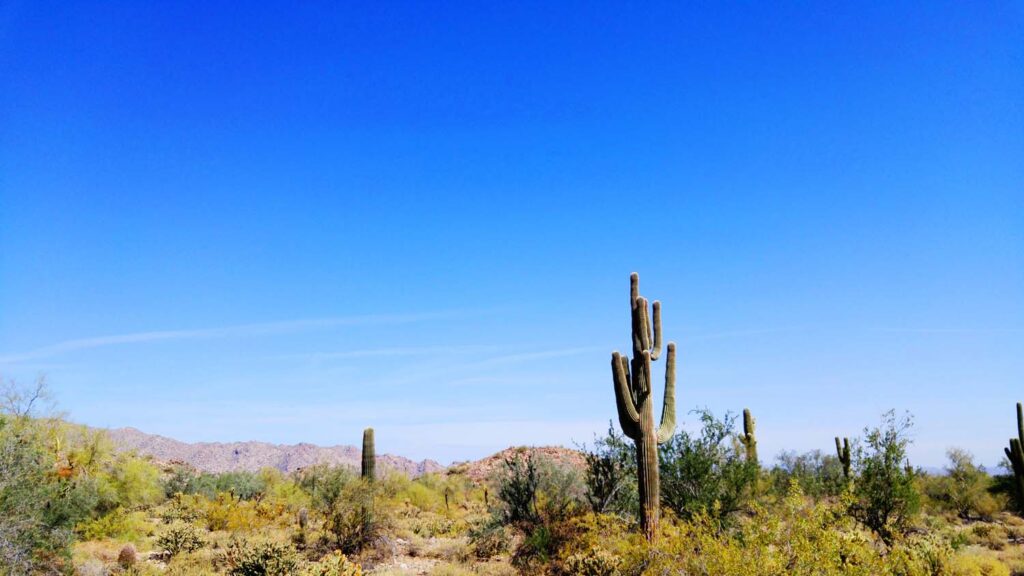
Hours, Fees & Parking
The park entrance fee is $7 USD. If you enter the park on foot, bike or horseback, the fee is only $2. After you pass through the park entrance, continue driving for another 3.5 miles. Drive until you reach the Waterfall Canyon parking lots. In addition to parking, you’ll also find picnic benches and washrooms.
The Park is open: Sun-Thurs: 6 am – 8 pm; Fri-Sat: 6 am – 10 pm.
After paying your entry fee, you can make a stop off at the nature center and library which is located just to the right of the park entrance. Here you can learn more about the mountains or ask the rangers any pressing questions. It’s also a great place to find maps of the trails.

What to Pack
- Water. Always be sure to pack lots of water! Even if you don’t think it’s going to be that hot, it’s always hotter than you expect. And even a short hike will get you dehydrated, especially when you start working up a sweat.
- Good walking shoes! Even though this is a beginner trail it’s still important to wear good footwear. I’ve seen people try to make this hike in sandals and once they get to the top of the waterfalls, the path is much rockier and it’s very easy to lose your footing.
- A hat. Always be sure to wear a large brimmed hat to keep the sun off your head. This helps prevent any chance of heatstroke if its a particularly hot day.
- Sunscreen. Sunscreen is a necessity even on cooler days because the sun is still out. And in Phoenix, we tend to get really cloudless skies. Sunscreen of at least SPF 30 depending on your skin type is best for hikers.
- Sunglasses. A good pair of sunglasses are also important to wear as they can make a big difference in protecting your eyes from the bright sun.
- A picnic! Although the hike isn’t very long, it’s a beautiful place to have a little picnic snack. When you reach the top of the mountain the views across Phoenix are stunning and it’s nice to sit and enjoy.
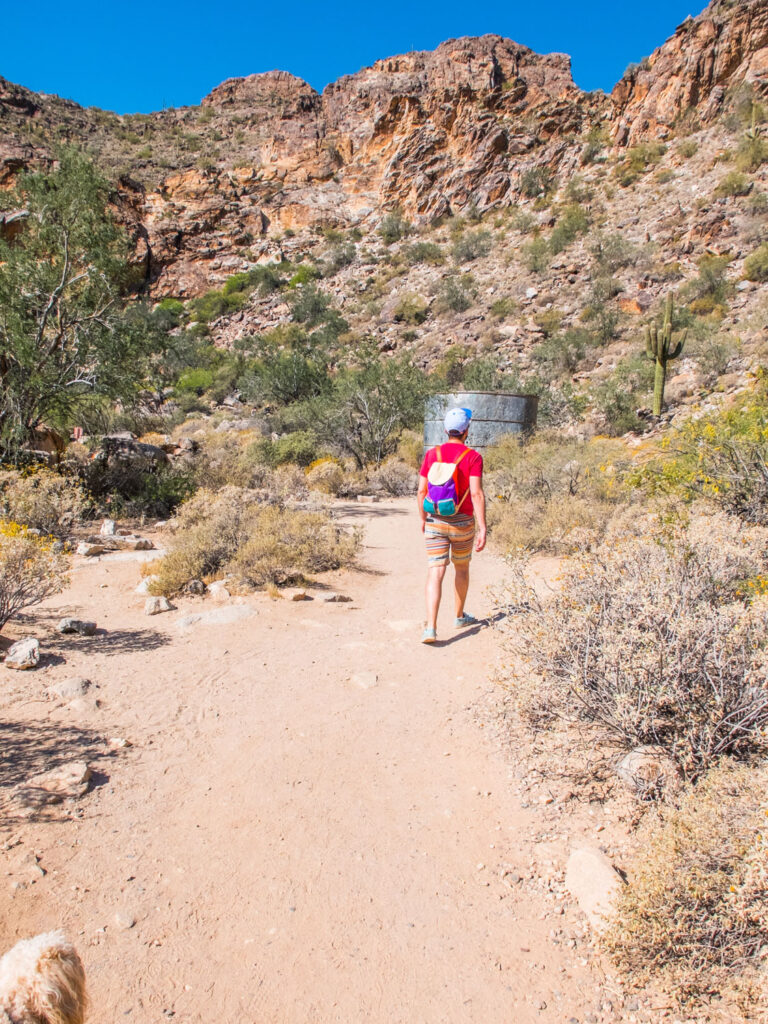
Accessibility
While the last portion of the path has a set of stones and stairs to climb, the majority of the trail actually has been made to be wheelchair accessible! The first portion of the Waterfall Trail is paved, allowing mobility aids to be used. This route also has a series of benches along the way to ensure those with mobility issues have places to stop and rest. I love that this makes it so accessible for so many people! As all easy trails should attempt to be where possible.

Pets
Dogs are allowed on the trail so long as they are leashed. Since the first mile is very flat animals will find this trail easy to walk on but older or less nimble dogs might find the last mile, with all the rocks and steps, more difficult.
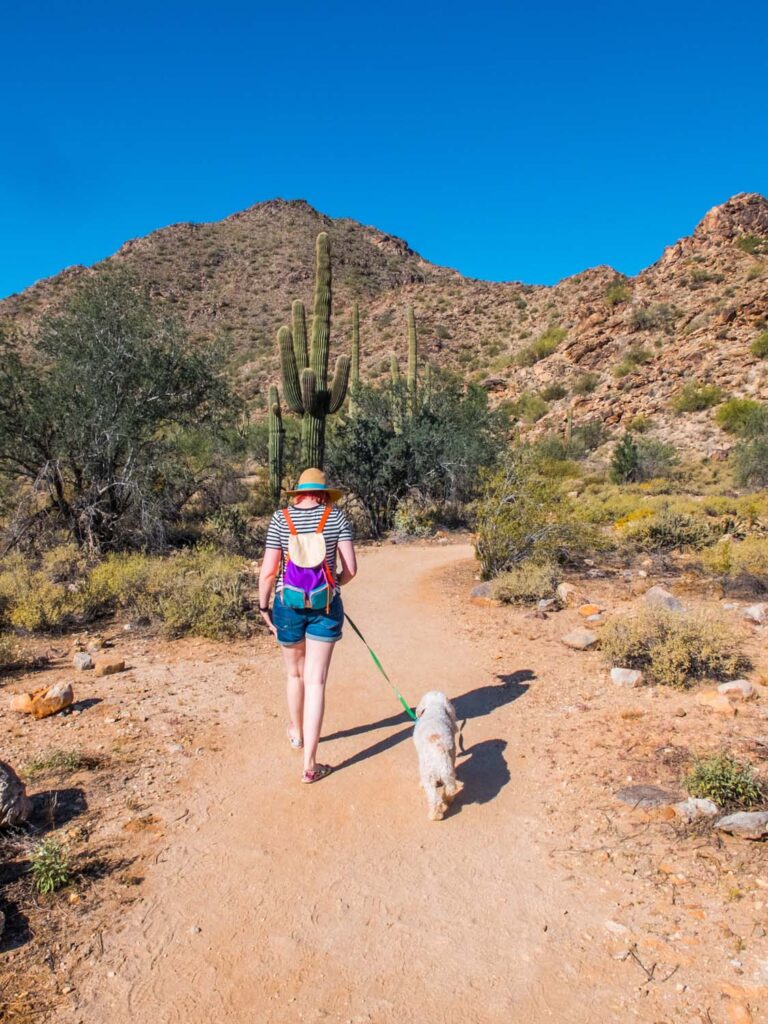
The Trail
The Waterfall Trail is a fantastic beginner hike. It’s only 1.8 miles long and could easily be done in about an hour if you didn’t stop along the way. But definitely stop and look around! That’s half the fun! The trail takes you through all the beautifully weird flora and fauna that Arizona has to offer. Cacti are abundant on the trail. If you’ve never seen the desert before this is an amazing introduction to all the cool varieties of cacti that grow in the Sonoran Desert!
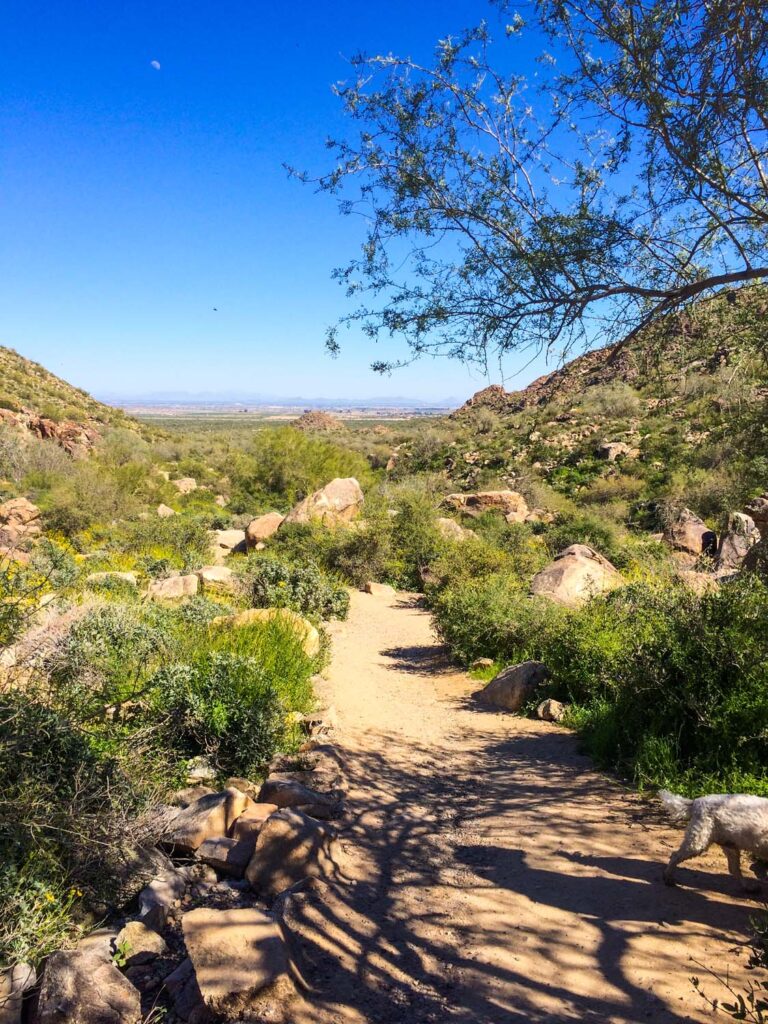
Staghorns
Old staghorns slump on the sidelines as you walk through the trail. The Staghorn cholla (Opuntia versicolor) are one of those cacti that looks like it’s from an alien planet. They have thin branches where crawl up from the ground covered in thin spikes. The name versicolor comes from the fact that their long-lasting flowers come in a range of colours; from ed, yellow, purple or intermediate shades.
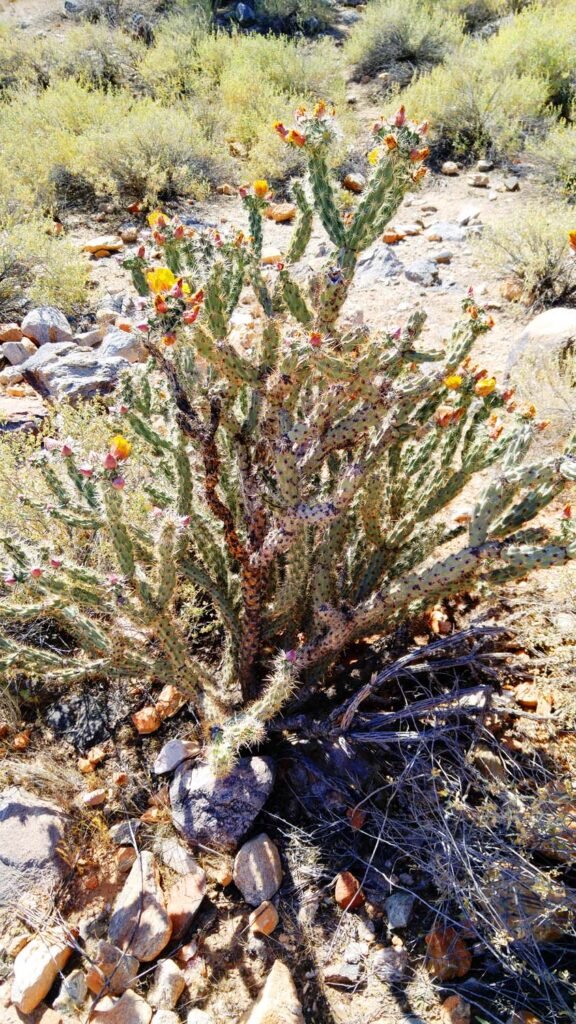
Barrel Cactus
Barrel cacti poke their heads out of the rocks as you walk along the path. The Ferocactus, or more colloquially Barrel cactus is one of the most commonly seen cacti in the Sonoran desert. The word Fero means “fierce or wild” as these cacti are some of the most ominous looking plants growing in the desert. In some species of the barrel cactus, the spikes which protrude from the cactus are curved, like a fishhooks. Which are pretty painful if you get stuck. Barrell cacti are one of my favourites when they bloom. Their yellow and red flowers bloom on top, look like a little crown on their head.
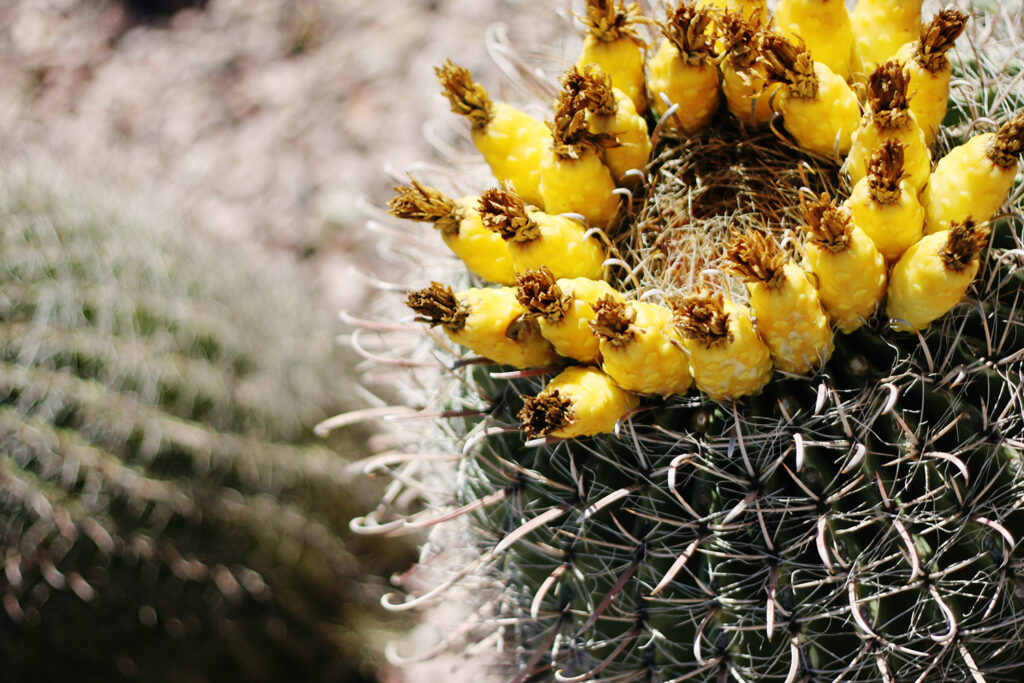
The Great Saguaro
The Saguaro cactus (or Carnegiea gigantea) is often referred to as the king of cacti! It has become the symbol of the Sonoran Desert and of Phoenix itself. The cactus grows up out of the earth like a column and develops braches, often referred to as arms. Some saguaros have been known to grow up to 25 different arms throughout their life! Saguaros are covered in large spines that protect the plant from animals. But even still, owls are often seen roasting in the trunks. In the late spring, saguaros bloom and grow beautiful white flowers which are said to smell like overripe melons. After they flower they will produce large red fruit, which is eaten by animals like finches, woodpeckers, doves, bats, tortoise, javelina and coyotes.
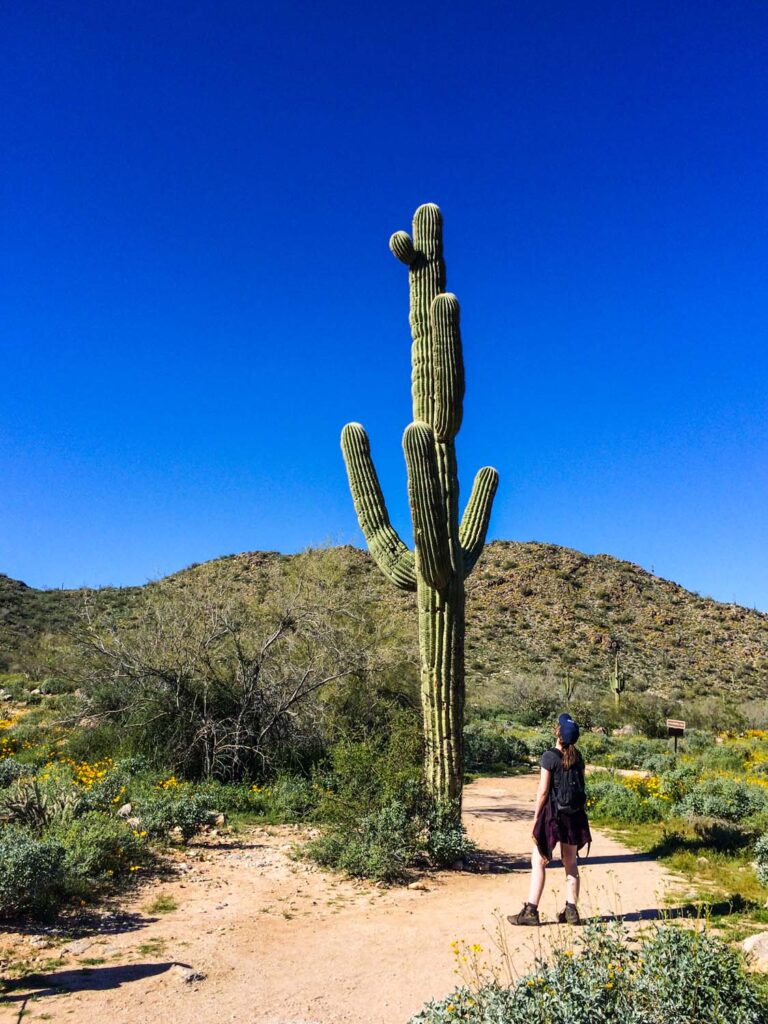
Teddy Bear Cacti
The “Teddy Bear” cactus is one of the most interesting cacti found along the edge of the trail. But don’t let that cute name fool you! These cacti are very dangerous! The cactus is officially called the Cylindropuntia bigelovii and is best known for its furry appearance. The furry texture is actually just a solid mass of thick spines that completely cover the stems. The form of the cacti looks almost like an animal and led to the name “teddy bear”. But it’s also known as the “jumping teddy bear”. The jumping part is due to the fact that if you even brush past the cactus, the cholla’s spines will grab onto the fibres of your clothes and dig their way into your skin. Ouch! Not quite the cuddly plant it seems to be….but they are still so interesting to look at from afar.
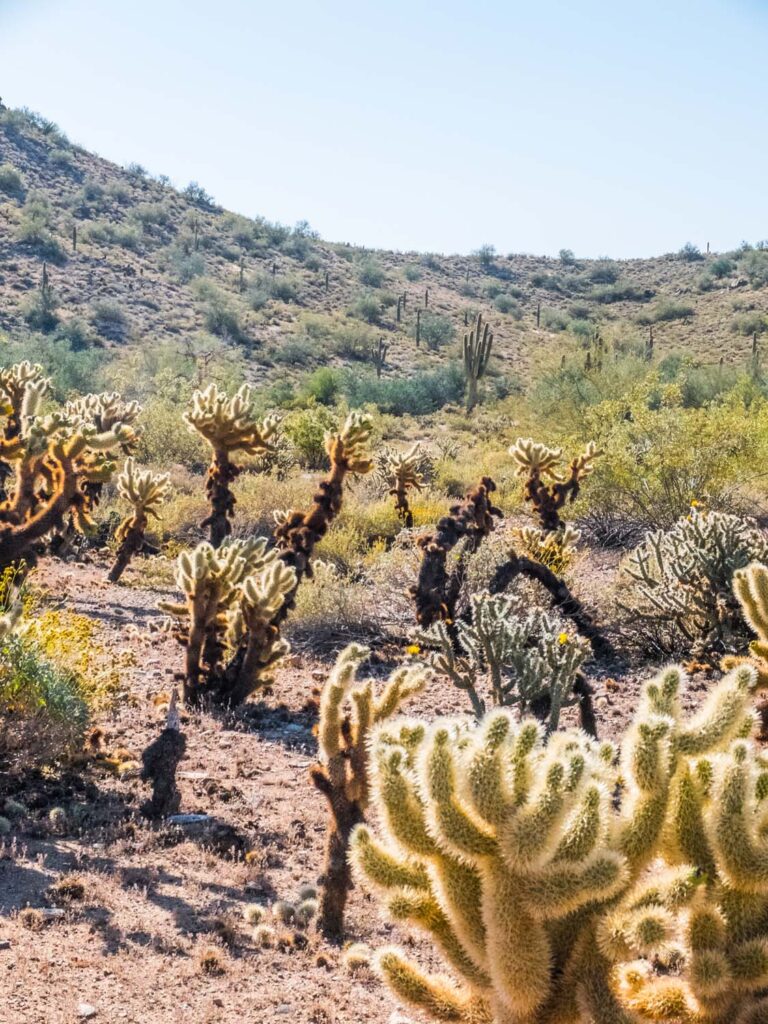
Wildlife
While most of the animals which live in these mountains are nocturnal there are some bits of wildlife you should keep an eye out for! The most commonly seen birds are cactus wrens and if you’re lucky you might spot a roadrunner! My favourite things to spot are the multitudes of lizards and reptiles which crawl along the rocks and poke their heads out to warm themselves in the sun. Mule deer, coyotes, mountain lions and javelinas have all been spotted by visitors but are extremely RARE!
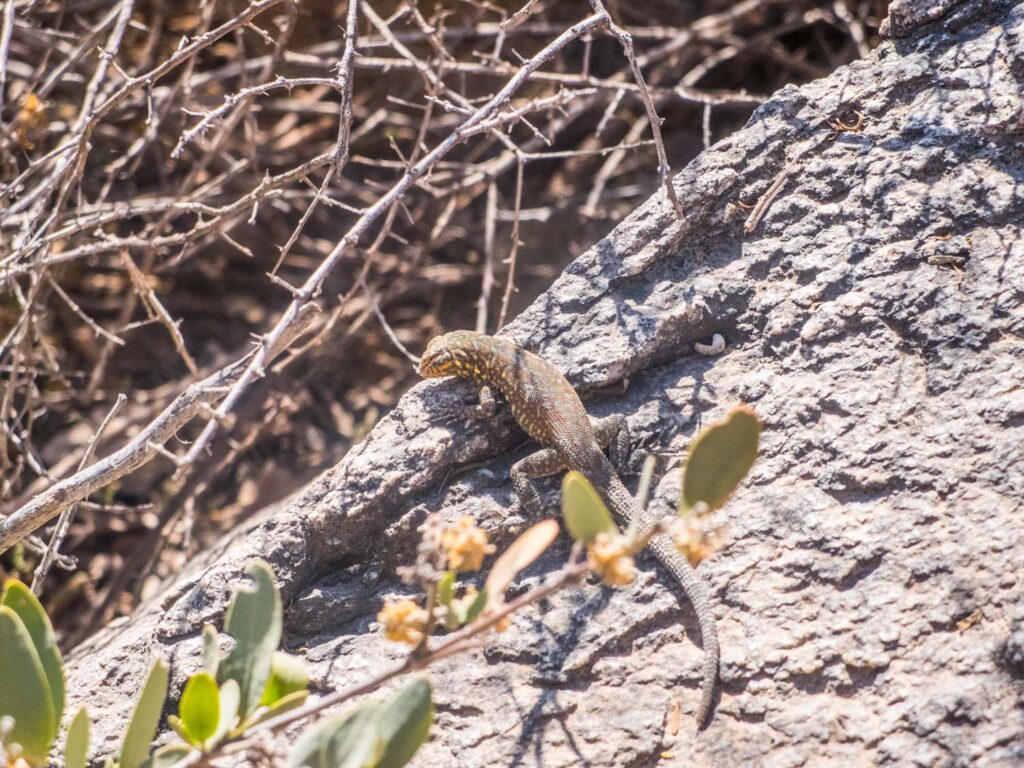
Petroglyph Plaza
As you continue along the path, you’ll soon come upon one of the most interesting parts of the trail; the Petroglyphs. The Petroglyph Plaza is where you can find a grouping of these ancient images. Petroglyphs are images created by removing part of a rock surface by carving into the stone. These are the earliest form of art. Ancient tribes would have used symbols to tell stories more than pictorial drawings. The Hohokam tribes which lived here from 100 BC to 1200 AD would have been the ones creating these works of art. Their style was very circular and curvy when compared to the art of other tribes.

Also located inside the Petroglyph plaza is a large rain barrel that has now been riddled with bullet holes and punctures.

Waterfall
After hiking for some time you’ll reach the pinnacle of the trail, the waterfall! Now, truthfully most of the time when you get here there will be little more than a puddle of water inside the basic. But, usually in the spring, when there’s been a significant amount of rainfall, a temporary waterfall appears seemingly from out of nowhere – falling from the sky.
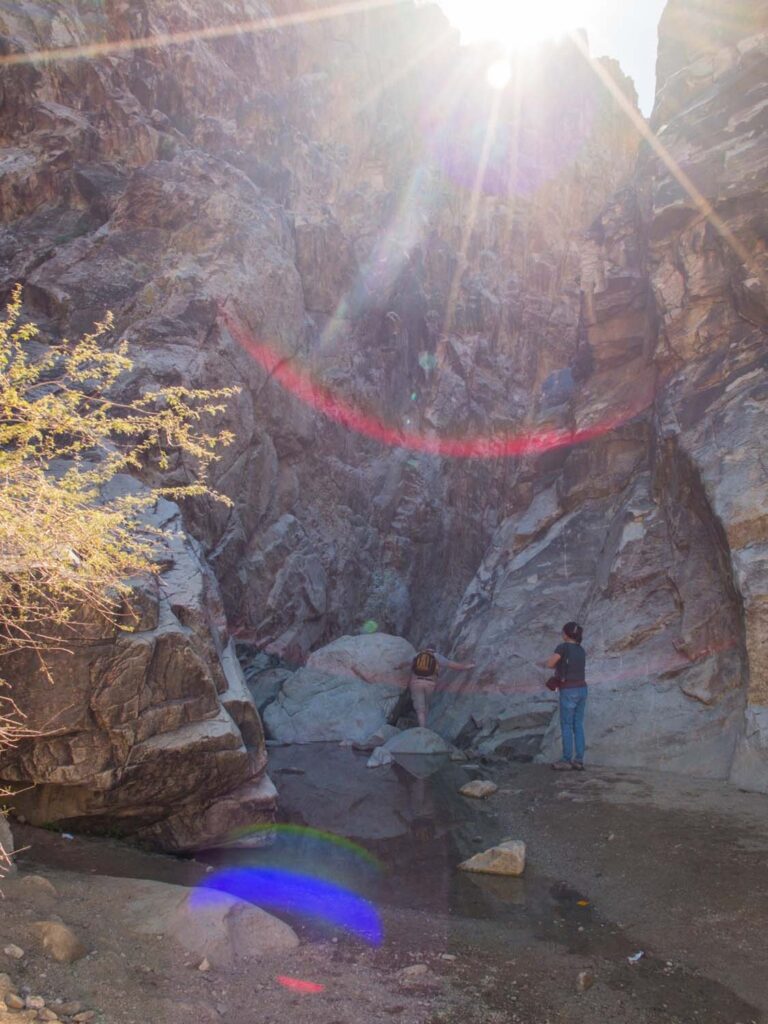
From the top of the mountain, you’ll get one of the most lovely Sonoran deserts views looking across the city. This is a wonderful place to stop and sit. Depending on the time of year, the valley below could be bursting with green or keeping its cool with golden and brown colours.

As you make your way back down, look at the sprawling desert, slowly disappearing as the city pops up in the distance. From above, the rugged mountains that surround the valley seem to tightly cradle that precious little city in their palms, keeping it safe from the world outside.
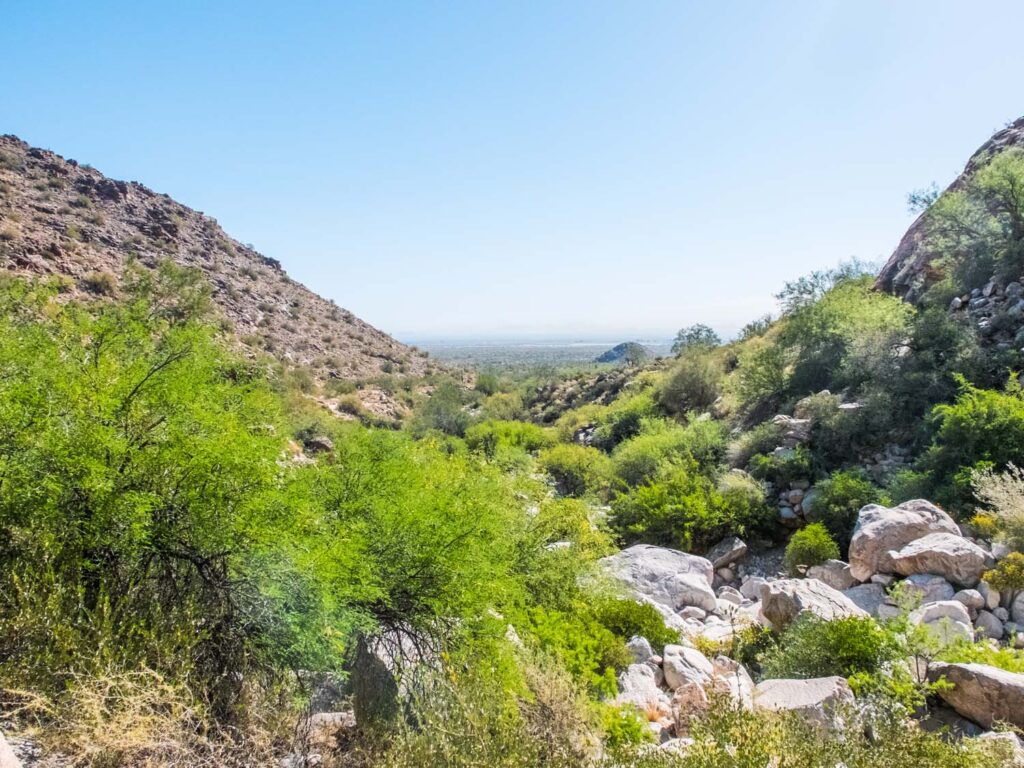
But all good things must come to an end. As you drive back to city life, enjoy the view of the saguaros spread out across the valley, as if popping up to say goodbye!
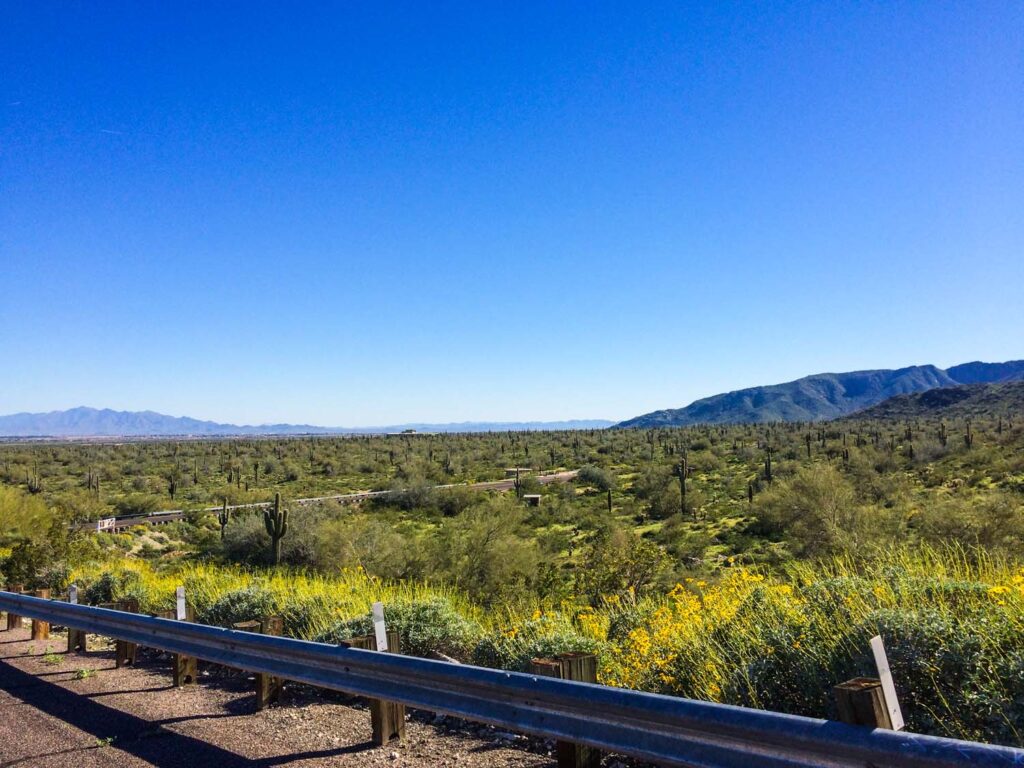
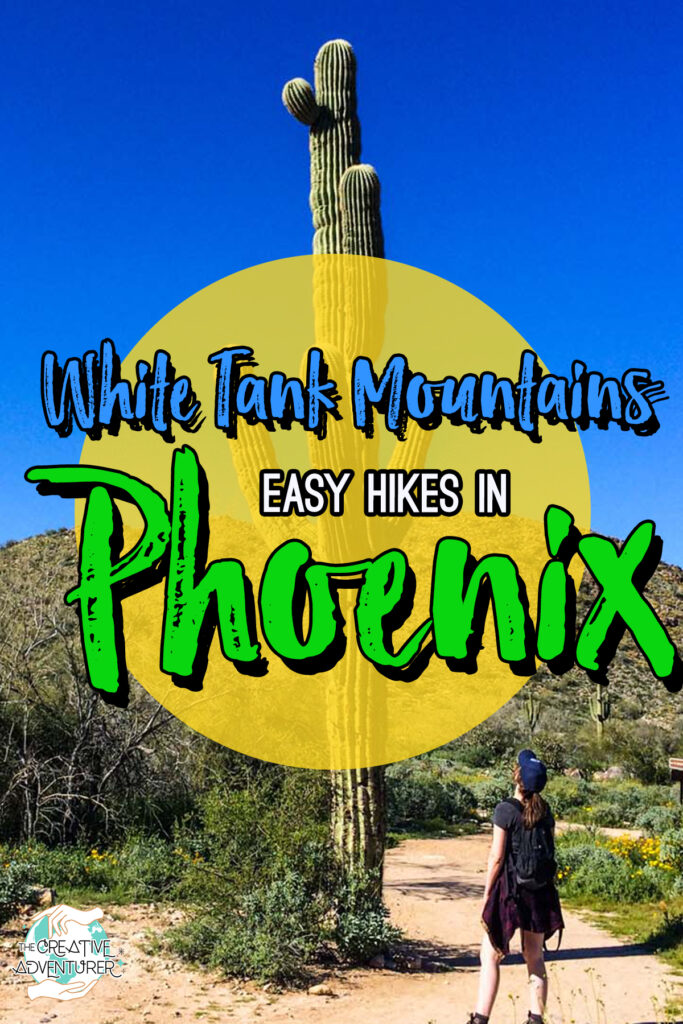




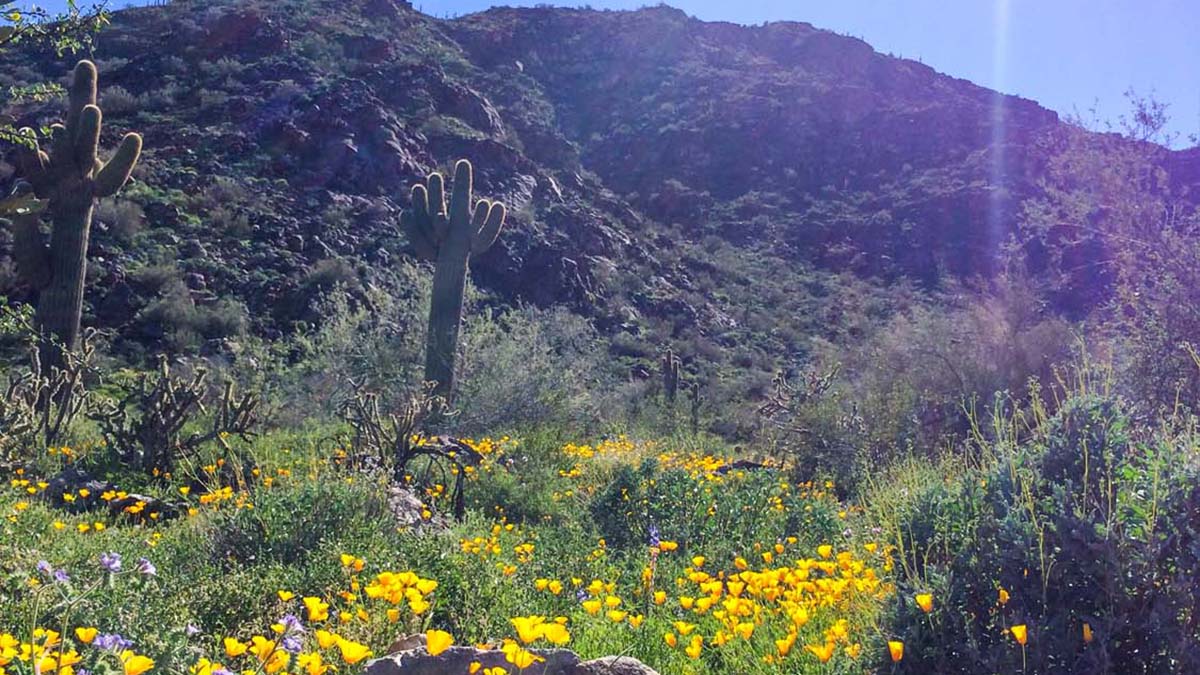

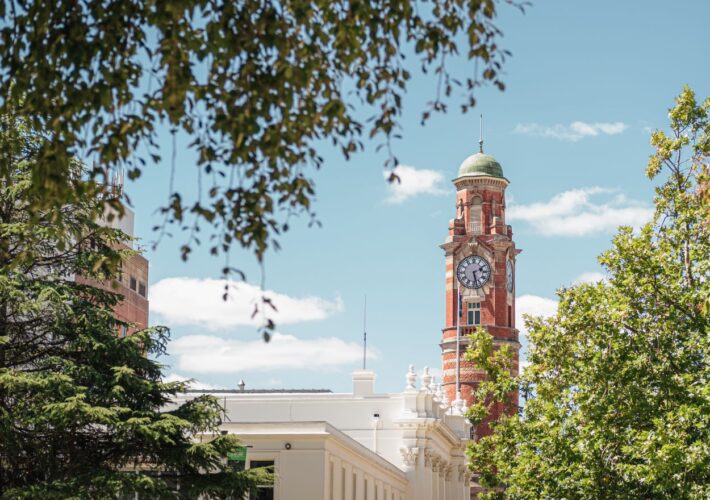
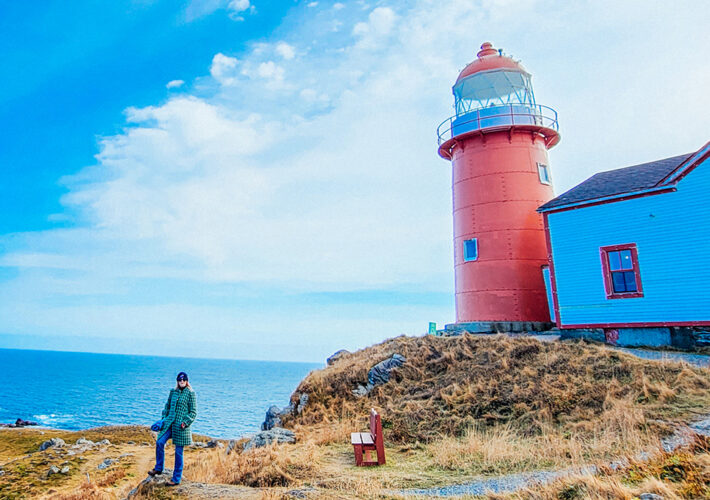
Leave a Comment